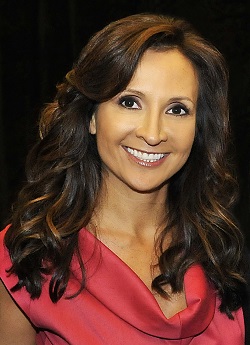
By ALEXANDER BURNS |
Big-city mayors will help lead a national push on immigration
reform and expanding early childhood education in 2014, Los Angeles
Mayor Eric Garcetti predicted Friday.
In an interview with POLITICO, Garcetti said that he and his fellow newly-elected mayors intended to speak out in the coming year on issues that have languished in a gridlocked Washington. He met Friday morning with other mayors and mayors-elect – including Ed Murray of Seattle, Betsy Hodges of Minneapolis, Mike Duggan of Detroit and Rick Kriseman of St. Petersburg, Fla. – at Washington’s Hay-Adams Hotel ahead of a White House sit-down with President Barack Obama.
The 42-year-old Garcetti, who was inaugurated last spring as the mayor of America’s second-largest city, said he hoped to find “a cohort of big-city mayors” who can press for policy change in a coordinated way nationwide.
“I think there will be strong voices that come from mayors about the importance of immigration reform. I would hope we’ll help move that in 2014,” Garcetti said. “I think you’ll see things happen with early education and youth: universal preschool, something that [New York City Mayor-elect Bill] de Blasio ran on, that we’re working on in LA and that’s a priority of the president.”
The Democrat also mentioned climate change as an area where cities have more room for activist leadership. A member of the Obama administration’s climate change task force, Garcetti said the initial meeting of that committee emphasized “the importance of cities and states, but cities in particular with municipal utilities.”
(PHOTOS: Immigration reform rally on the National Mall)
Like many mayors, Garcetti downplays the partisanship of his position and noted that he had to capture both Democratic and Republican votes in order to win his office in the first place. But the national, mayor-friendly agenda he sketched out was plainly in line with the increasingly progressive message of the White House.
“On things like the minimum wage, where cities as well as states are increasingly looking at income disparity, mayors will have, I think, a very strong voice,” he said.
The former Los Angeles city council president has already been bandied about as a future candidate for statewide or federal office in California, where both senators and the governor are all Democrats over the age of 70.
But Garcetti said he has no expectation that the governor’s office in Sacramento will be open anytime soon. While incumbent Gov. Jerry Brown has not yet announced whether he will run for reelection in 2014, Garcetti said it’s only a matter of time.
“I’m confident that he will announce he wants to run again,” Garcetti said. “I think he finally has cracked the code in California of how to be both pragmatic and practical, so I expect that he’ll be serving for another five years.”
An early endorser of Obama’s 2008 campaign who saw former President Bill Clinton weigh in against him during the mayoral race earlier this year, Garrcetti said he would be “excited” about a Hillary Clinton candidacy in 2016 – and related a warm exchange he had with the 42nd president, who reached out immediately after the Los Angeles election.
“He left a message, I called him right back, he picked up his cell phone and we had a wonderful conversation,” Garcetti said. “I understand relationships. My opponent worked for the Clinton administration … Every election – President Clinton acknowledged this – you have to win on your own.”
Garcetti called himself an admirer of Hillary Clinton, and said his endorsement of Obama had more to do with his relationship with the president than any objection to the former first lady’s candidacy.
“I have always been a fan,” he said. “I’d be very enthusiastic to see her running.”
In an interview with POLITICO, Garcetti said that he and his fellow newly-elected mayors intended to speak out in the coming year on issues that have languished in a gridlocked Washington. He met Friday morning with other mayors and mayors-elect – including Ed Murray of Seattle, Betsy Hodges of Minneapolis, Mike Duggan of Detroit and Rick Kriseman of St. Petersburg, Fla. – at Washington’s Hay-Adams Hotel ahead of a White House sit-down with President Barack Obama.
The 42-year-old Garcetti, who was inaugurated last spring as the mayor of America’s second-largest city, said he hoped to find “a cohort of big-city mayors” who can press for policy change in a coordinated way nationwide.
“I think there will be strong voices that come from mayors about the importance of immigration reform. I would hope we’ll help move that in 2014,” Garcetti said. “I think you’ll see things happen with early education and youth: universal preschool, something that [New York City Mayor-elect Bill] de Blasio ran on, that we’re working on in LA and that’s a priority of the president.”
The Democrat also mentioned climate change as an area where cities have more room for activist leadership. A member of the Obama administration’s climate change task force, Garcetti said the initial meeting of that committee emphasized “the importance of cities and states, but cities in particular with municipal utilities.”
(PHOTOS: Immigration reform rally on the National Mall)
Like many mayors, Garcetti downplays the partisanship of his position and noted that he had to capture both Democratic and Republican votes in order to win his office in the first place. But the national, mayor-friendly agenda he sketched out was plainly in line with the increasingly progressive message of the White House.
“On things like the minimum wage, where cities as well as states are increasingly looking at income disparity, mayors will have, I think, a very strong voice,” he said.
The former Los Angeles city council president has already been bandied about as a future candidate for statewide or federal office in California, where both senators and the governor are all Democrats over the age of 70.
But Garcetti said he has no expectation that the governor’s office in Sacramento will be open anytime soon. While incumbent Gov. Jerry Brown has not yet announced whether he will run for reelection in 2014, Garcetti said it’s only a matter of time.
“I’m confident that he will announce he wants to run again,” Garcetti said. “I think he finally has cracked the code in California of how to be both pragmatic and practical, so I expect that he’ll be serving for another five years.”
An early endorser of Obama’s 2008 campaign who saw former President Bill Clinton weigh in against him during the mayoral race earlier this year, Garrcetti said he would be “excited” about a Hillary Clinton candidacy in 2016 – and related a warm exchange he had with the 42nd president, who reached out immediately after the Los Angeles election.
“He left a message, I called him right back, he picked up his cell phone and we had a wonderful conversation,” Garcetti said. “I understand relationships. My opponent worked for the Clinton administration … Every election – President Clinton acknowledged this – you have to win on your own.”
Garcetti called himself an admirer of Hillary Clinton, and said his endorsement of Obama had more to do with his relationship with the president than any objection to the former first lady’s candidacy.
“I have always been a fan,” he said. “I’d be very enthusiastic to see her running.”


